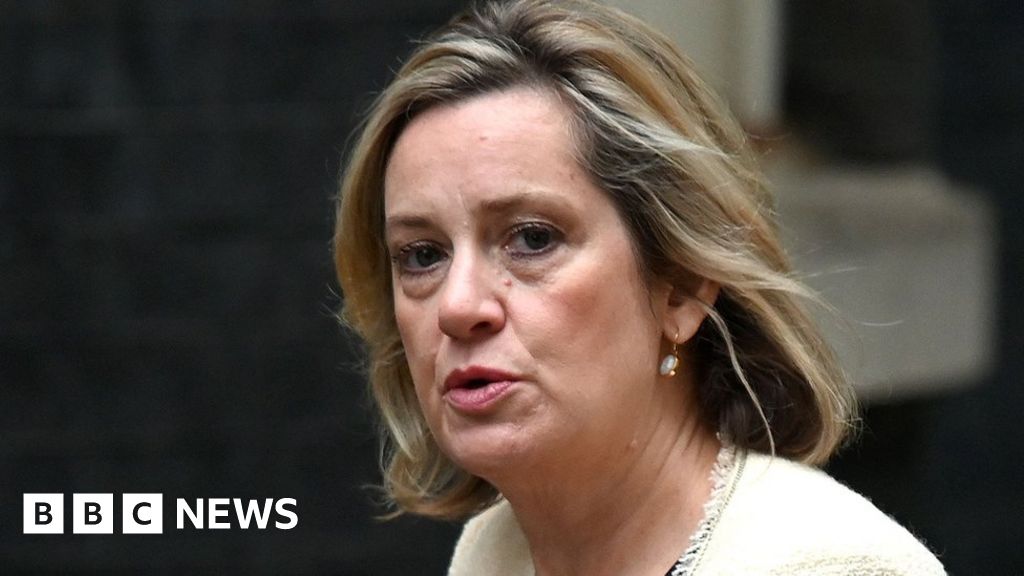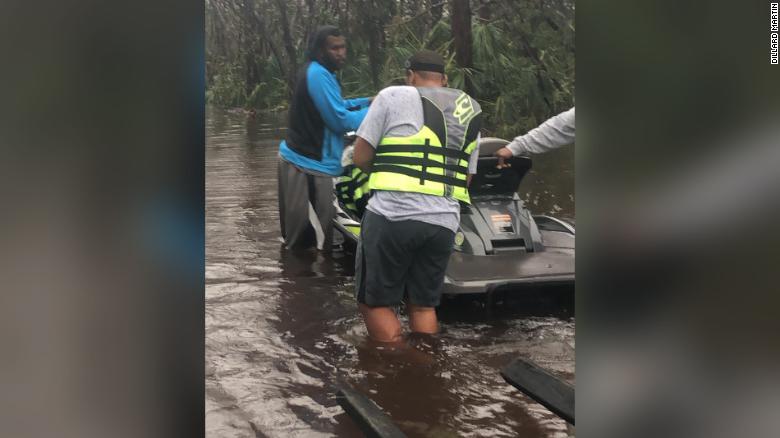
Amber Rudd has quit the cabinet and surrendered the Conservative whip saying she cannot "stand by" while "moderate Conservatives are expelled".
The work and pensions secretary said she no longer believed leaving the EU with a deal was the government's "main objective".
Ms Rudd described the sacking of 21 Tory MPs on Tuesday as an "assault on decency and democracy".
No 10 said it was "disappointed" by the resignation of a "talented" minister.
But a spokesperson added that "all ministers who joined the Cabinet signed up to leaving the EU on 31 October come what may".
A senior government source said "resignations to chase headlines won't change the fact that people want Brexit done so that government can deliver on domestic priorities".
Labour said Ms Rudd's resignation showed the government was "falling apart".
The MP for Hastings and Rye, who supported Remain in the 2016 referendum, said her resignation had been "a difficult decision".
"I will be considering my position - whether I will stand as an independent Conservative should there be an election coming up," she told the Sunday Times.
In her resignation letter to PM Boris Johnson she said: "I joined your cabinet in good faith: accepting that 'No Deal' had to be on the table, because it was the means by which we would have the best chance of achieving a new deal to leave on 31 October.
"However I no longer believe leaving with a deal is the government's main objective."
Her resignation comes after a week of setbacks for the prime minister, when a cross-party group of MPs seized control of the Parliamentary agenda.
They voted through a bill to block a no-deal Brexit - which Mr Johnson said "scuppered" his negotiating strategy with the EU - and rejected his call for a snap election on 15 October.
Following the rebellion Mr Johnson removed the whip from 21 Tory MPs - including two former chancellors and the grandson of Sir Winston Churchill, Sir Nicholas Soames.
The government is also planning - in a breach of convention - to stand a candidate against the Speaker of the Commons, John Bercow, at the next election for allowing rebel MPs to take control of the Parliamentary timetable.
Ms Rudd described the expulsions as a "short-sighted culling" of "broad-minded and dedicated Conservative MPs".
"I cannot support this act of political vandalism," she added.
One of the rebel MPs, David Gauke, tweeted that Ms Rudd had been "extraordinarily brave" and her concerns "reflect the views of many of my (former) colleagues".
"One way or another, it is time for them to act," he added.
Fellow rebel Rory Stewart described Ms Rudd as a "true One Nation Conservative", adding: "we must unite to support a Brexit deal and get this done".
Health Secretary Matt Hancock said the Conservative Party had "always been a broad church" and he was "gutted" to see Ms Rudd leave.
Prison threat
On Saturday, the prime minister was warned he could face prison if he followed through on threats to ignore the new law preventing the UK leaving the EU without a deal.
Mr Johnson wrote in the Mail on Sunday and Sunday Express that on Monday he will offer Labour leader Jeremy Corbyn "one last chance" to agree to an early election.
If Mr Corbyn refuses, Mr Johnson said "this government will simply carry on".
He added that he would work "tirelessly" for a deal but the government would still prepare to leave the EU on 31 October "whatever happens".
Brexit Secretary Steve Barclay, writing in the Sunday Telegraph, said "we are doing everything we can" to reach a deal.
But he said the EU were setting a test on the Irish backstop arrangement that is "impossible to meet".
The backstop - a position of last resort to maintain a seamless border on the island of Ireland - is proving a serious obstacle to Mr Johnson's Brexit plans.
Mr Barclay said the government is proposing "reasonable alternative solutions" but he objected to the EU's demand for "molecular detail" on how they would work before 31 October.
In response to Ms Rudd's resignation, shadow Brexit secretary Sir Keir Starmer tweeted that Mr Johnson's government was "falling apart".
Labour Party chair Ian Lavery said the resignation was a sign that "no one trusts" Mr Johnson.
"The prime minister has run out of authority in record time and his Brexit plan has been exposed as a sham," he said.
SNP Westminster leader Ian Blackford called on the prime minister to resign, arguing he had "no support or credibility left".
"Boris Johnson's Tory government is on the verge of collapse - with no majority, no mandate and no right to pursue its reckless plans to impose an extreme Brexit," he said.
Who is Amber Rudd?
- The 56-year old has been MP for Hastings and Rye in East Sussex since 2010
- Her majority in the 2017 election was just 346 votes
- In the 2016 referendum, she was a Remain supporter - her brother helped fund the campaign
- Ms Rudd was appointed home secretary in July 2016
- She resigned as home secretary in 2018 over the Windrush scandal, saying she "inadvertently misled" MPs
- But an inquiry concluded she was let down by her officials and she returned to the cabinet as work and pensions secretary months later
- Ms Rudd was married for five years to the late journalist and writer AA Gill
- An Edinburgh University graduate, she previously worked in banking and recruitment
- She was credited as a consultant on the 1994 hit film Four Weddings and a Funeral
- In the 2016 Tory leadership debates, she described Boris Johnson as the "life and soul of the party but not the man you want driving you home at the end of the evening".
https://www.bbc.com/news/uk-politics-49623737
2019-09-08 05:34:36Z
52780376700372






